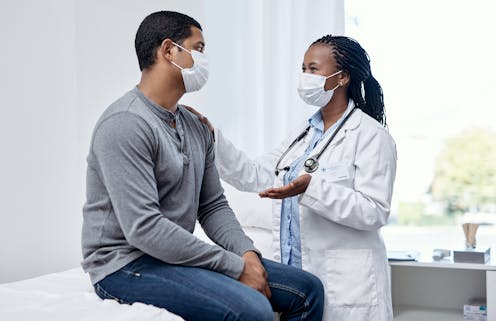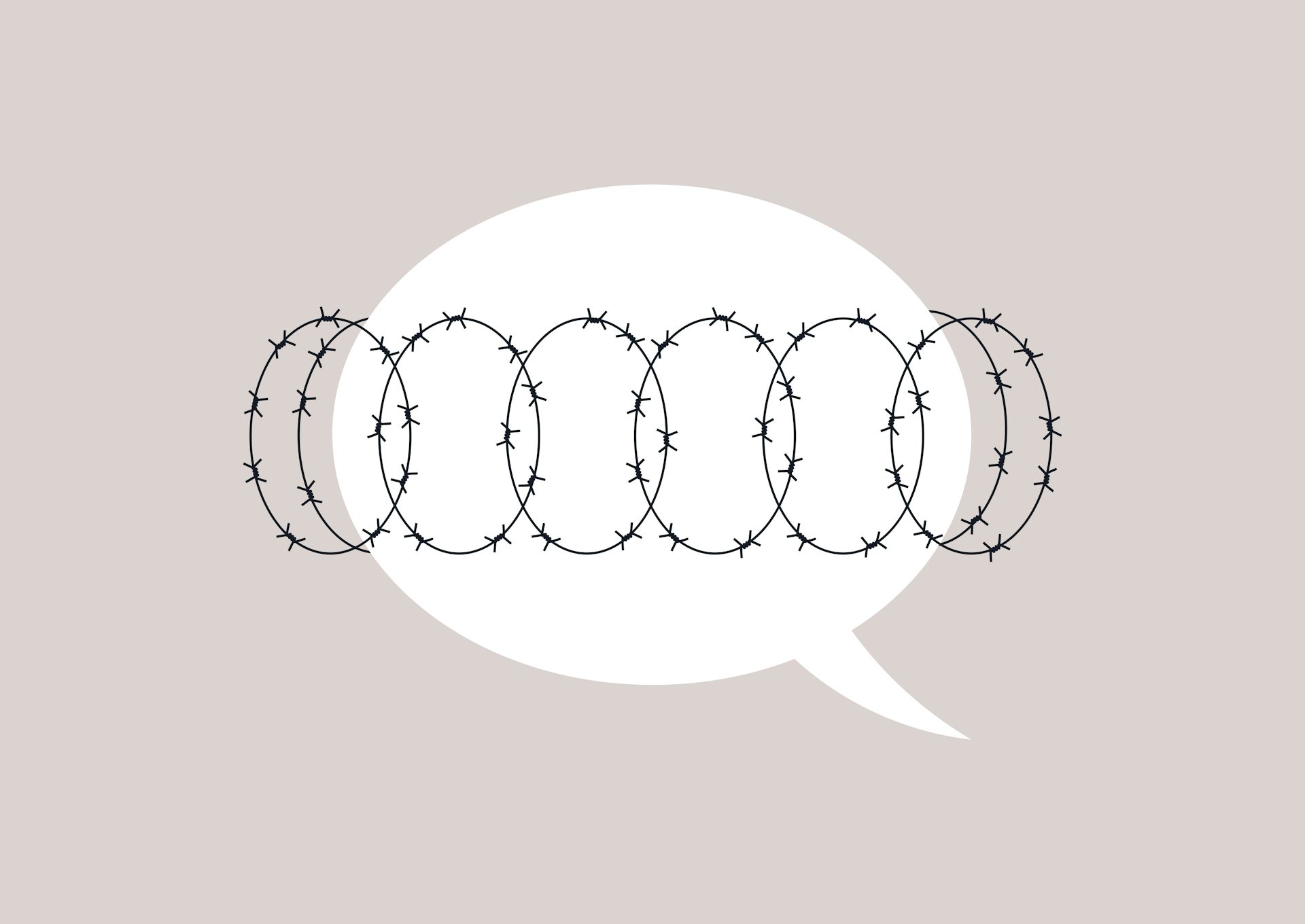A direct recommendation from a doctor may be the final push someone needs to get vaccinated
There are a variety of reasons why people do or don’t want to be vaccinated. Depending on how they frame their messaging around vaccination, doctors can often be the deciding factor.

Have you found yourself feeling frustrated when trying to convince a friend or family member to get vaccinated for COVID-19? Or maybe you are that friend or family member, and you’re fed up with people pushing you to get vaccinated.
Though the science is clear that COVID-19 vaccines save lives, it can be difficult to start a productive conversation about vaccination. And doctors experience the same challenge, too.
We are researchers at the UMass Chan Medical School who have been trying to address this challenge. One of us is a critical care pulmonologist who was on the front lines working in the COVID-19 intensive care unit during the darkest days of the pandemic. And one of us has studied patient perspectives on health and health care for many years. To figure out how doctors can best talk to their patients about vaccination, we first needed to understand what patients were concerned about.
Why people choose to get vaccinated (or not)
In April 2020, when vaccines for COVID-19 were still undergoing testing, we asked 1,000 adults across the U.S. about their vaccination plans, and why. Around 3 in 10 were not sure whether they would get vaccinated, and 1 in 10 planned not to get vaccinated. Both groups gave a variety of reasons for their reluctance, including concerns about vaccine safety and side effects, wanting to wait for additional information, thinking they were not personally at risk, and distrust of the government, the Centers for Disease Control and Prevention, or vaccines.
We then conducted another survey in January 2021 just as the vaccine was becoming available to the public, with a new sample of about 1,700 people. Reasons for vaccine reluctance hadn’t changed since April 2020. The most common reasons were concerns about vaccine safety, speed of vaccine development and insufficient testing, as well as a general distrust of the COVID-19 vaccines.
In addition, we found that those who planned on getting vaccinated knew more about COVID-19 transmission, the potential health effects of the disease and vaccine effectiveness. They also were much more likely to rely on data and statistics when making decisions about their health than those who were hesitant about getting vaccinated.
Doctors can make a difference
If people who are reluctant to get vaccinated don’t rely on statistics to make health decisions, what do they rely on?
Turns out their doctor plays a big role. Several studies have shown that many people rely on their doctor’s advice in making decisions about vaccines.
We tested different approaches doctors could take to talk to their patients about the COVID-19 vaccine. While all of the messages included statements that the patient was eligible for a safe and effective vaccine, they differed by what the doctor said following this information.
We found that the most effective message was an explicit recommendation (“I recommend that you get it”) coupled with a reference to protecting others (“It’s the best way to protect the people you are close to and keep them healthy”). About 27% of those who received this message became more likely to get vaccinated.
In comparison, the least effective message was elective, or open-ended (“So what do you think?”) – only 13% were more likely to be vaccinated after receiving this message.
[The Conversation’s most important coronavirus headlines, weekly in a science newsletter]
When we followed up with people who were initially hesitant six months later, about 33% had since gotten vaccinated. Notably, of those who had a conversation with their doctor directly recommending vaccination, 52% had been vaccinated, compared to only 11% of those whose doctor had not recommended the vaccine.
Their reasons for vaccination varied. More than half cited wanting to protect others. Others expected that vaccination would be required, or were worried about getting COVID-19.

What can you do?
Getting at the heart of what motivates someone can be an important step in understanding their point of view. These findings may help you have more effective conversations with your family and friends – and even your own doctor.
If you are vaccinated and are seeking to encourage a friend or family member who is not:
Suggest that they talk to their doctor. The COVID-19 vaccines are becoming available in doctors’ offices, which will make it easier to get vaccinated in a familiar setting. Their doctor may also be able to provide the reassurance they need to feel good about getting the vaccine.
Talk about protecting others. Tell them how good it feels to play a role in reducing the spread of a potentially deadly disease.
Talk about protecting yourself. Tell them how freeing it is to feel safe.
If you are not vaccinated, but are wondering whether you should be:
Talk to your doctor. Tell your doctor what worries you about getting vaccinated. Your doctor has current, accurate information on the COVID-19 vaccines and can answer your questions. You may be able to get vaccinated during your visit. If not, your doctor can give you information on where to get vaccinated.
Talk to people who have been vaccinated. Many have said they were nervous or afraid to get vaccinated, but once they received their COVID-19 shot, they felt safe and relieved.
Consider how you might feel in different situations. Some people don’t mind taking chances with their own health. Others can picture what it’s like to be in a hospital for weeks or be hooked up to a ventilator, and don’t want to take that risk. And almost everyone would feel terrible if they were responsible for someone they cared about getting very sick.
Figuring out how to have a productive conversation about COVID-19 vaccines can be difficult. Looping in your doctor is one way to close the communication gap.
Kathleen Mazor receives funding from the National Library of Medicine and the UMass Chan Medical School.
Kimberly Fisher receives funding from the National Library of Medicine and the UMass Chan Medical School.
Read These Next
‘Expertise’ shouldn’t be a bad word – expert consensus guides science and society
Expertise comes with training, experience and accreditation. And expert consensus is the best guide…
AI-induced cultural stagnation is no longer speculation − it’s already happening
AI-mediated culture is already being filtered in ways that favor the familiar, the describable and the…
Lebanon’s orchards have been burnt, wildlife habitat destroyed by Israeli strikes – raising troublin
Ongoing conflict, particularly in a three-month period in late 2024, caused widespread environmental…






